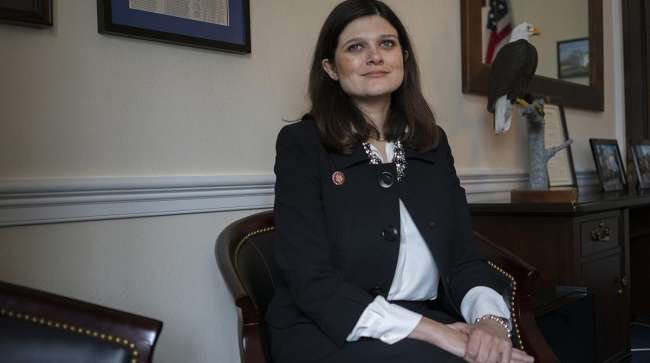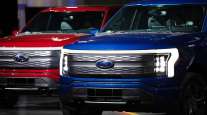Winning EV Battery Race Called 21st Century ‘Moonshot’

[Stay on top of transportation news: Get TTNews in your inbox.]
The U.S. needs to make up ground lost to Chinese battery makers and dominate the next generation of the technology, a bipartisan group of lawmakers said after meeting the chief executives of Ford Motor Co. and General Motors Co. in Detroit.
“Winning the battery manufacturing race for electric vehicles is the moonshot of the 21st century,” Rep. Haley Stevens (D-Mich.) said in an interview.
Stevens said Congress must boost incentives to help the U.S. develop its own battery industry. She led the group of four lawmakers from the House Select Committee on Competition with China to meet with the automakers.
The U.S. is still largely dependent on China for the critical minerals required to make batteries, and some experts estimate that an independent supply chain remains years away. Chinese companies account for more than half of the EV battery market and satisfy as much as 90% of demand for some battery materials, according to BloombergNEF.
China has an “early advantage because of some of the investments they made in the past,” said Rep. Raja Krishnamoorthi (D-Ill.), the top Democrat on the committee. “However, even the electric vehicle battery space is changing” and American companies can innovate for the next generation of the technology, he said.
Want more news? Listen to today's daily briefing above or go here for more info
Stevens and Krishnamoorthi, along with Rep. Mike Gallagher (R-Wis.), the panel’s chairman, and John Moolenaar (R-Mich.), met with Ford CEO Jim Farley and GM CEO Mary Barra to discuss dependence on Chinese supply chains, particularly for electric vehicles.
Gallagher said there were “limits right now in terms of suppliers” that auto manufacturers can use.
“There are only a handful of companies that can make some of this technology,” he added. By adjusting policies, the U.S. can “dominate the next generation of battery technology,” he said.




